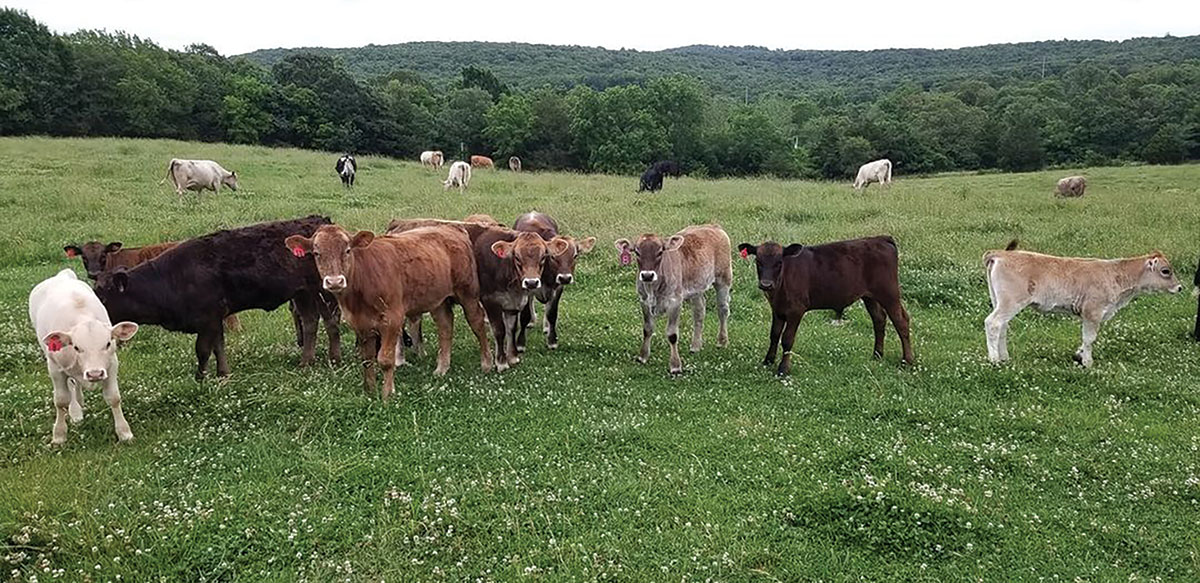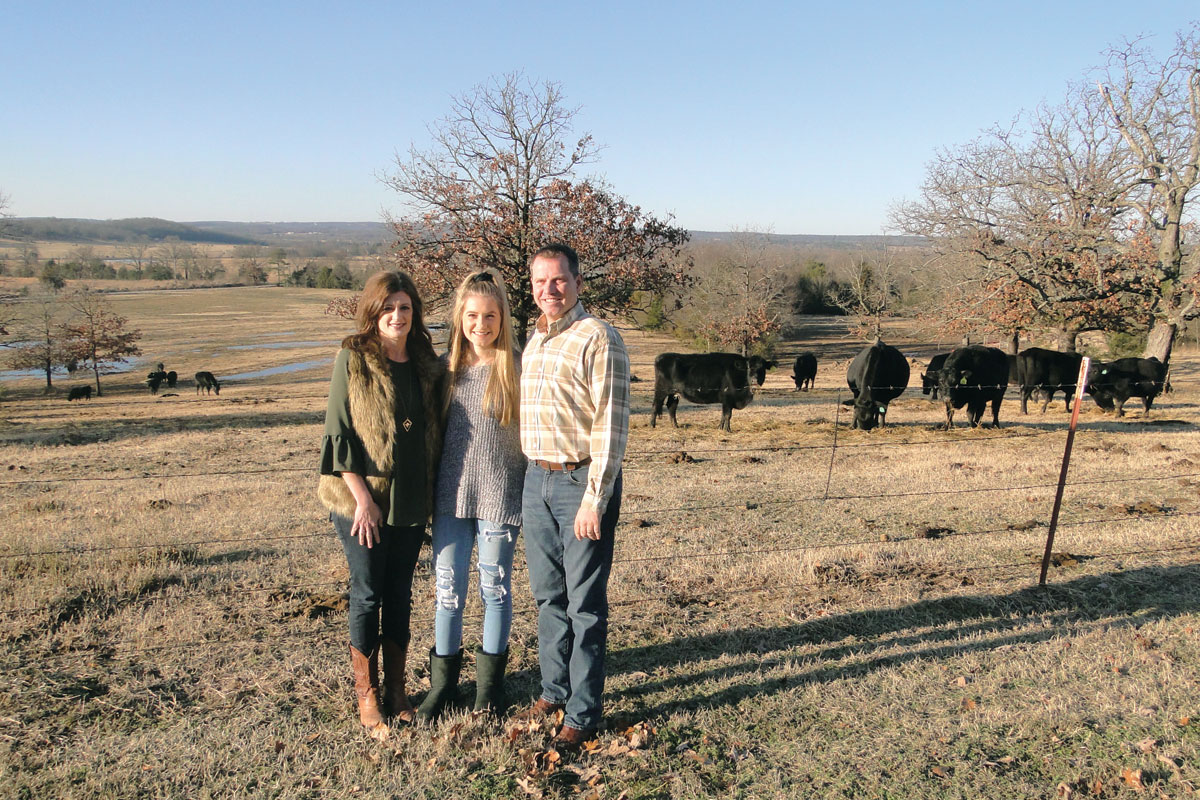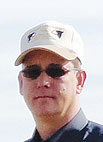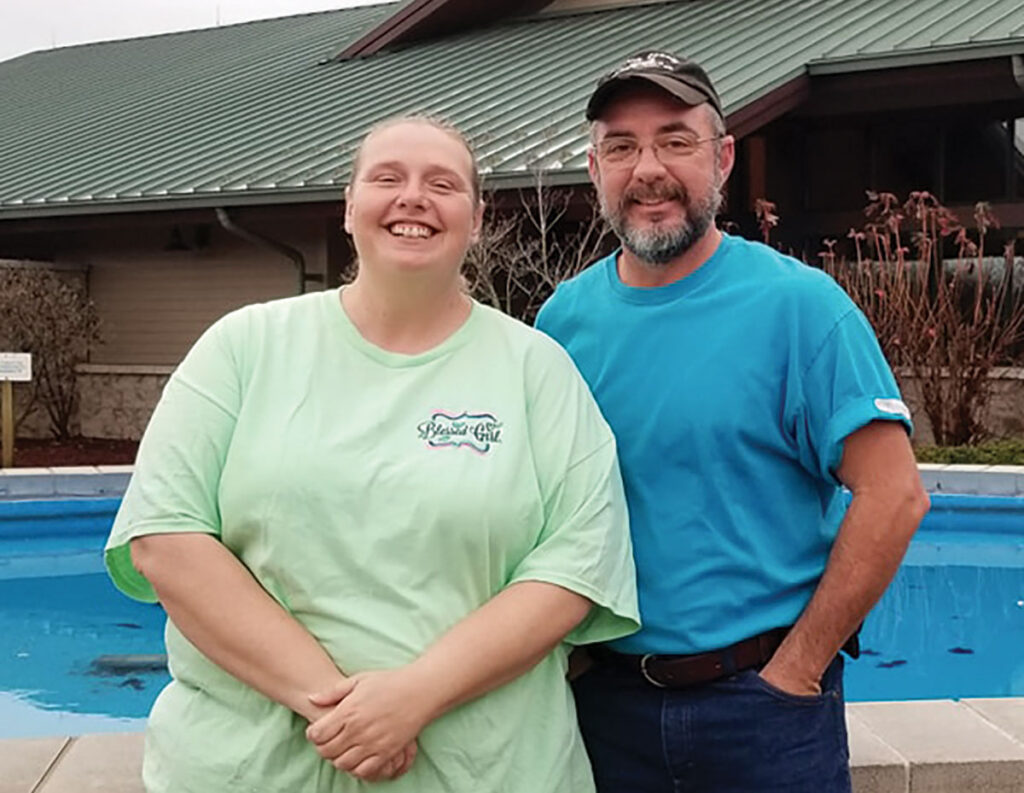
Cousins John Smith and Melissa Eaton are partners at TenX Farms
WEST FORK, ARK. – As a teenager working on his uncle’s farm, John Smith dreamed of owning a TenX beaver felt Stetson hat one day.
Today, John and his first cousin, Melissa Eaton, manage and operate the family farm under the guidance of their uncle, Gene Still. The farm, now called TenX Farms has been in the family for more than 90 years.
The original 40 acres were purchased by Gene’s grandparents, who sold a team of mules they had been gifted as a wedding present to make the purchase. His grandfather was a blacksmith who broke and trained mules for the Army, and he used mules to clear the land. Gene traveled all over the country as a young man, doing migrant farm work, plowing fields to plant crops, harvesting in Washington state, and cutting stave logs. He would send his money back to his mother, and she would put it in the bank. When Gene returned to Northwest Arkansas, he had enough money to buy several small parcels of land adjacent to the original farm. Today, the farm is 225 acres.
Gene, now 88 years old, was married late in life. He has stepchildren but no biological children. His sisters are John and Melissa’s mothers. He was a carpenter by trade and worked the farm with his wife.
“She took care of the farm while he worked in town,” Melissa said.
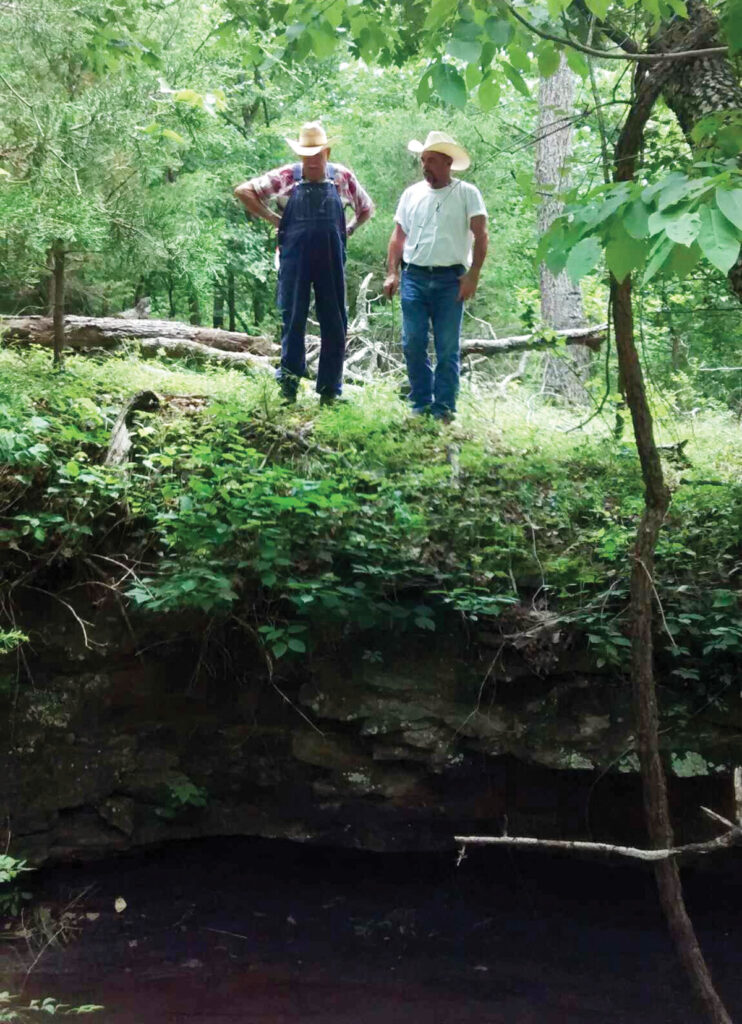
In 1992, he required a medical procedure that resulted in him receiving a mechanical heart valve. After Gene’s wife passed away 10 years ago, John and Melissa created a partnership to take care of their uncle and to carry the farm forward. John had spent all his summers working on the farm as a kid, and Melissa would visit every summer.
“We would not be who we are without him,” Melissa said. “He is the closest thing to a dad either of us have ever had.”
Melissa is a teacher at Elkins Elementary, and at first, she would drop by every weekend to check the cows for her uncle and do odd jobs for him. Eventually, both John and Melissa moved onto the farm with him. The farm has always been a cow/calf operation, and when Melissa moved in, she asked to have a few chickens. The eggs from the chickens are sold to customers at the school. They keep Boer/Nubian cross goats and Katahdin sheep on the farm since Gene’s wife always had them. They have five mules and two horses. The mules are a tribute to their family heritage and Uncle Gene. John is currently training the mules and horses to pull logs to a sawmill located on the farm under his uncle’s direction.
“He can no longer drive a team, but I can often hear him softly giving cues from the porch to the mules and me as I am working them,” John said.
TenX has 42 head of Braunvieh/commercial cross cattle. They bought a registered Braunvieh bull from Texas. According to John and Melissa, Braunvieh are a dual-purpose animal with strong maternal instincts; they have great muscling and marbling, and the meat has a little sweeter taste.
“When we were researching what we wanted to raise, we settled on the Braunvieh because they are known as ‘The Old Man breed’ due to their gentle, docile nature,” John said. “It is very important to us to have cattle that are gentle because, at the age of 88, Uncle Gene is still involved on the farm. He still works the headgate whenever we work the cows.”
Braunvieh look similar to Brown Swiss and Jersey but are heavier; this is often a downfall when they are taken to the sale barn.
“Sometimes what we do doesn’t make sense to other farmers, but we have to do what is best for us, and it is important to us that we can keep our uncle involved, and these cattle are gentle enough that we can be sure of his safety,” John said.
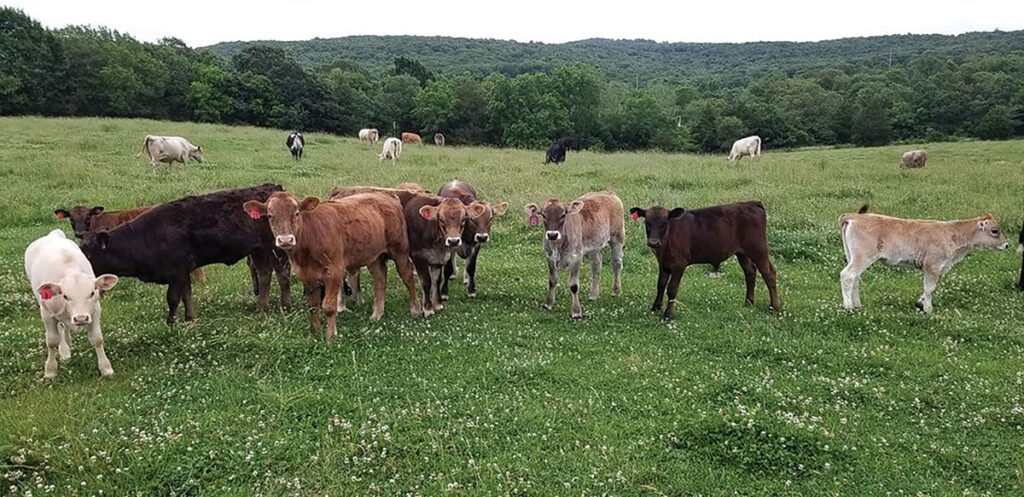
During COVID, finding new methods to market their cattle became important, so John and Melissa started looking at ways to make their beef available in farm-to-table options. They contacted a local locker plant and contracted to have one beef a month processed. They have kept that standing appointment every month since that time.
“The only advertisement we do is through Facebook,” said Melissa. “It works well for us.”
They send their calves to be processed a little younger, looking for a hanging weight of around 400 to 500 pounds, ensuring the beef is very tender. Keeping them at this weight allows people on a tighter budget to purchase good quality beef at an affordable price. They have many repeat customers.
Cattle are pasture-fed with only a little supplemental grain, which keeps them coming up into the corral and workable. They vaccinate twice a year as needed and are monitored closely monitored daily. Any sick or injured animals are culled.
Even though Uncle Gene has turned most of the day-to-day activities and decision-making over to John and Melissa, he still has the final say.
“Sometimes we get set in our heads on what we want to do and forget to listen to those voices from the porch,” Melissa said. “One of the biggest lessons I have learned in the past 10 years on this farm is to stop and listen to those who have gone on before. Sometimes, you must go back to the basics. Listen to those voices from the past because they still have a lot to teach us.”
“And the less they say, the more intently we need to listen,” John added.
Did John ever get his TenX hat? No, but he was later gifted a Twenty X hat for those occasions when a “town hat” is required. However, he would say what he has gained in life experiences means so much more than that hat ever could have; what he has learned from his Uncle Gene cannot be measured in wealth.
“What I’ve learned is, the only thing that is important is that man right there,” he said, pointing to his uncle. “He has taught me that everyone is important. Everyone and everything have a purpose, and we need to have unconditional love for everyone and every animal.”
“We are extremely blessed to have this opportunity to spend all these years with our uncle, and it has been our honor,” Melissa said.

